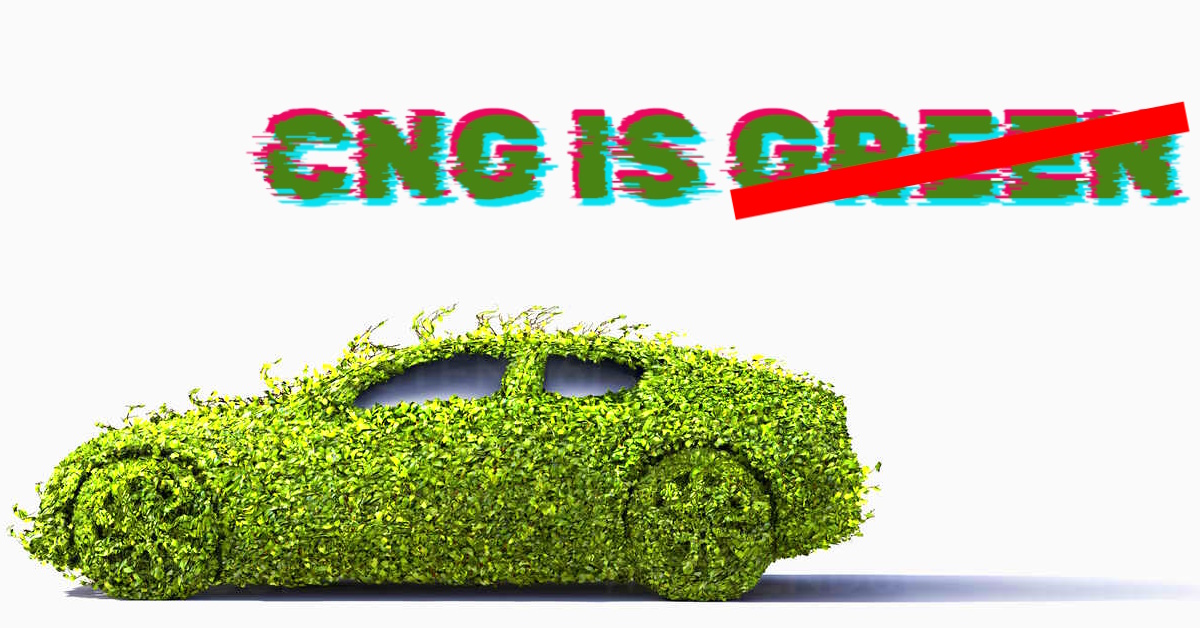CNG Is NOT A Green Fuel: Lab That Exposed Volkswagen’s Dieselgate


Volkswagen had run into serious troubles with the ‘Dieselgate’ scam. Now the lab that exposed this scandal has come up with a report that debunks the popular notion that CNG is a green fuel. A new report by the International Council on Clean Transportation (ICCT) assessed the air quality of Delhi and Gurugram in India’s National Capital Region, using data collected with the help of local authorities.
With the help of local authorities, ICCT used advanced remote sensing technology to monitor and analyze emissions from real traffic flows. The report clearly states that CNG is NOT a clean fuel. The CNG vehicles that were tested, emitted 1.5–14 times more than their type-approval limits. Further, CNG exhausts emit high levels of Nitrogen Oxide (NOx). This gas is cancerous and can cause a series of chronic lung diseases. It can also damage lung development in children.
The study also observed that BS6 compliance has significantly improved tailpipe emissions. However, real-world emissions often exceed the type-approval limits, especially in high-use commercial vehicles. These discrepancies arise because type-approval testing is conducted under controlled laboratory conditions, which do not fully replicate the complexities of real-world driving scenarios. Further, products from commercial and fleet segments showed 2.4-5.0 times more NOx than corresponding private vehicle forms.
Delhi already has a strong focus on pollution control and the development and adoption of greener fuels and alternative energy sources. The city has high EV adoption in both personal and fleet segments. Commercial vehicles rely heavily on CNG here, with a mandate already in existence for using it in buses and taxis. The ICCT report challenges this and the Pollution Under Control Certificate (PUCC) surveillance system.
The Pollution Under Control Certificate (PUCC) requires all fossil-fuel-powered vehicles to undergo regular emissions checks, with car owners facing fines if they do not maintain an up-to-date certificate. According to ICCT, the PUCC inspection hardware fails to capture NOx and Particulate (PM2.5). It thus distorts the real-time on-road emission levels.
As we speak, the automotive and air pollution monitoring tech are both more sophisticated than the technology used by PUCC, adding more to discrepancies in real-world results. This essentially means that the next time you get fined for not having a valid PUCC certificate, you might end up remitting for something that makes zero practical sense! The PUCC testing equipment and methodologies need immediate upgrades…
Yes, our country is obsessed with natural gas! It’s been around for decades but has spiked in the past few years. CNG powertrains can now be seen in various vehicles, across segments and price ranges. Cars, SUVs, and even motorcycles now offer CNG dual-fuel powertrains. Multiple manufacturers are currently innovating the space. But why this affinity for CNG?
It is not because it delivers more in performance or is outright a better fuel. The primary reason is that CNG is cheap. The extraction happens in India, and the fuel is thus very affordable. The Government has been aggressively promoting natural gas, as more reliance on the same will allow for lesser oil imports.
It was ICCT that uncovered Volkswagen’s infamous Dieselgate scam. In 2015, the German giant falsified the real-time NOx emission data of its diesel engines, in its report to the US Environmental Protection Agency. The scandal known by the name ‘Dieselgate ‘, soon landed VW in huge trouble. It even led to many manufacturers reconsidering diesels in many global markets, over concerns of NOx and particulate emissions.
The study conducted on CNG vehicles in India is, in a way, similar to this. Delhi and Gurugram can also make the best specimen, as these are two of the most polluted cities in the country, with infamous AQ levels during most times of the year. The findings will likely be used in future policy-making. These might also play key roles in the further evolution of BS norms. The government should introduce stricter tests and pollution control norms for CNG-equipped vehicles…